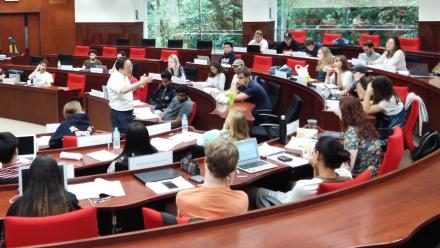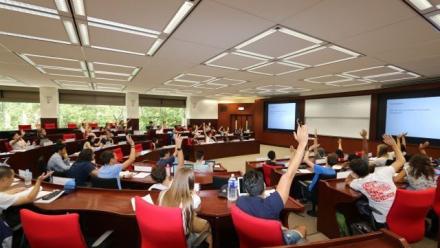Traditionally, the nation state has been viewed as the only legitimate unit of political rule. However, through the importance of reenergizing regional development and the process of globalization, political authority has been ‘pulled down’ within the states or ‘sucked up’ beyond the state, leading to the practice of ‘multilevel governance’. And that is the theme of this last class: multilevel politics. It is a complicated policy process in which political authority is distributed at different levels of territorial aggregation.
Under the theme of multilevel politics, today’s discussion focused on Decentralization. It has been seen as a solution for many problems, such as improving the economy, regional development and accommodating citizens’ demands. The four common types of decentralization are: political decentralization, fiscal decentralization, administrative decentralization, and market decentralization.
Through today’s case, regarding the decentralization in Asia and Africa, students analyzed the reasons why Governments might either choose between centralization and decentralization, and then guided by Dr. Maekawa, they discussed the advantages of either decision and compared it with federal systems.

 Download
Download
 Infosession
Infosession
 Application
Application
 Open Campus
Open Campus









